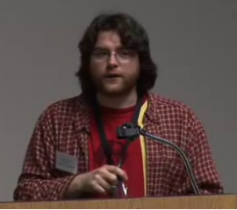A Quote by Darl McBride
We're not talking about insignificant amounts of code. It's substantial System V code showing up in Linux.
Quote Topics
Related Quotes
When we take a top-tier view of the amount of code showing up inside of Linux today that is either directly related to our Unix System 5 that we directly own or is related to one of our flavors of Unix that we have derivative works rights over--we don't necessarily own those flavors, but we have control rights over how that information gets disseminated--the amount is substantial. We're not talking about just lines of code; we're talking about entire programs. We're talking about hundred [sic] of thousands of lines of code.
There's a definite sense this morning on the part of the Kerry voters that perhaps this is code, 'moral values,' is code for something else. It's code for taking a different position about gays in America, an exclusionary position, a code about abortion, code about imposing Christianity over other faiths.
Code wants to be simple... I had to give up the idea that I had the perfect vision of the system to which the system had to conform. Instead, I had to accept that I was only the vehicle for the system expressing its own desire for simplicity. My vision could shape initial direction, and my attention to the desires of the code could affect how quickly and how well the system found its desired shape, but the system is riding me much more than I am riding the system.
"You, who are on the road, must have a code that you can live by-"* You'll find universal agreement on the value of a behavior code, on the need for some sort of ethical system. Even the crooks count on "honor among thieves," and countries actually wage war according to certain rules. On the job and in the rest of our day-to-day living, we each need a "code for the road."




































